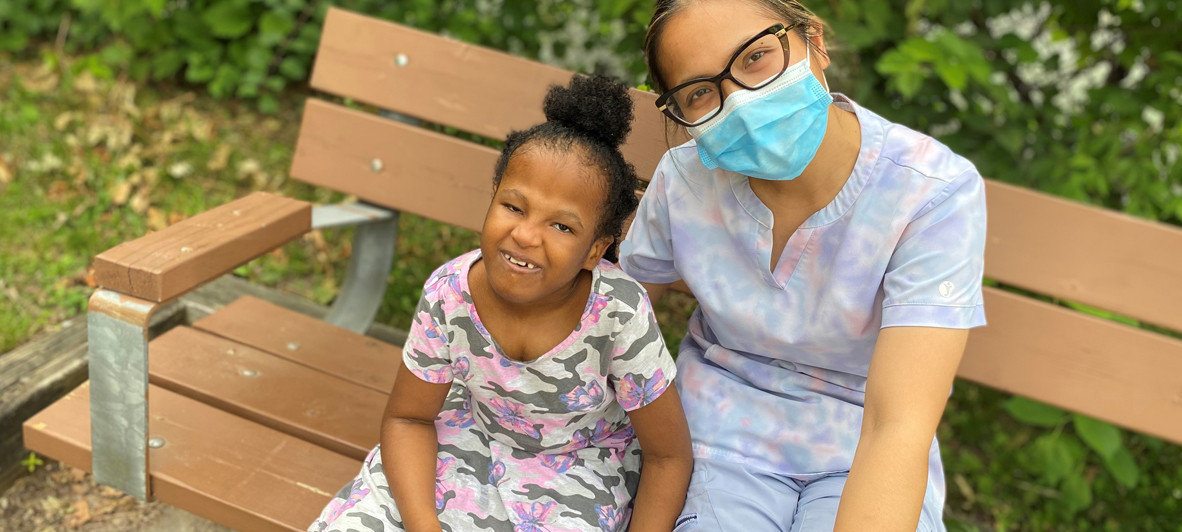
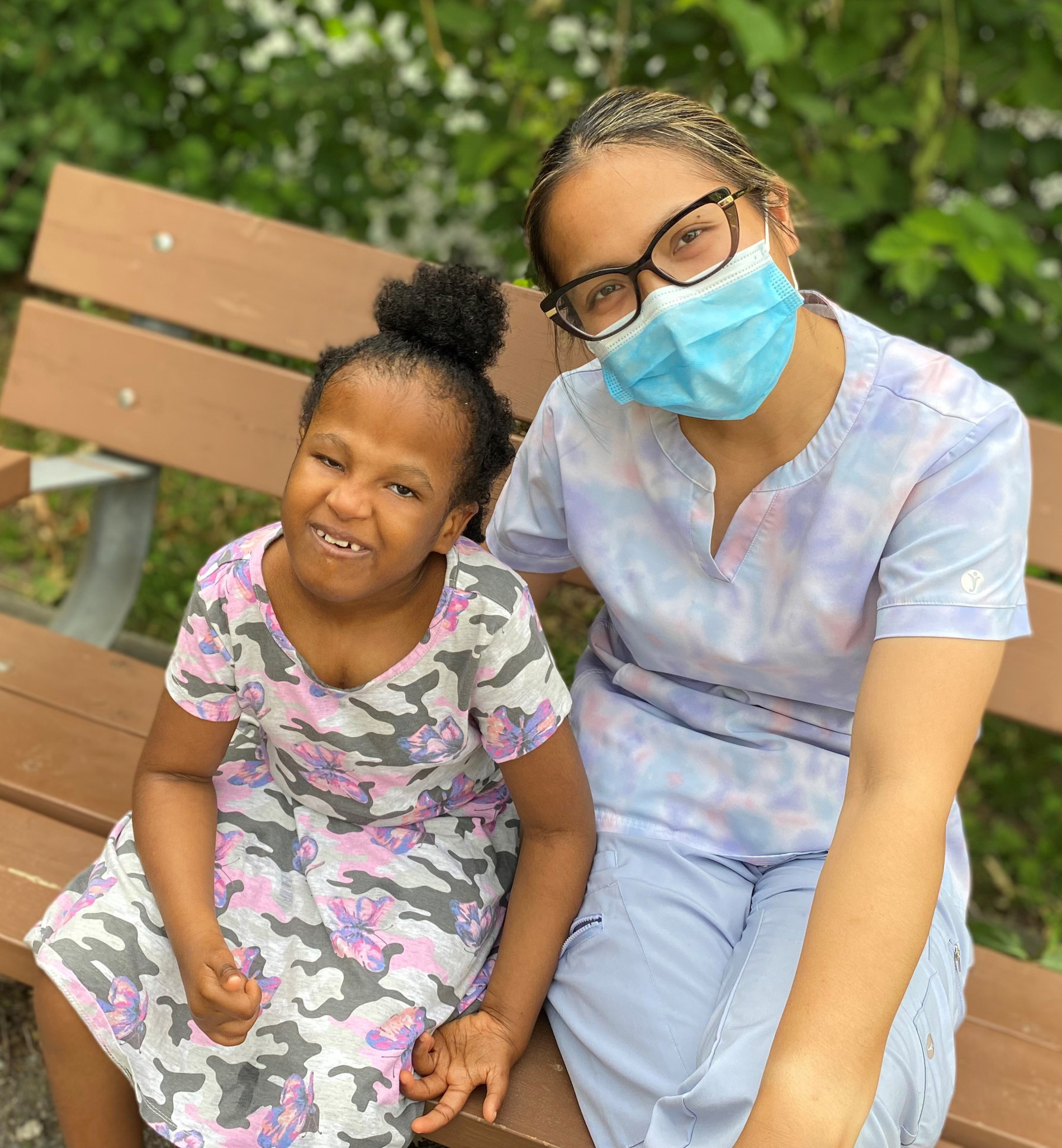
SickKids support that doesn’t end when you leave the hospital
The extraordinary thing about Jahlisa is that she laughs — deep belly laughs when her dad and siblings play with her. Jahlisa’s family was told she’d probably never laugh, let alone live longer than two months after birth. Jahlisa is now seven. She has Trisomy 18, a rare chromosomal disorder that causes a range of physical abnormalities and developmental delays. She spent her entire first year of life at SickKids. When it was finally time to go home, her family was overjoyed — and terrified.
“It was a mix of feelings,” says Jahlisa’s mom, Sophia. “We had basically lived at SickKids and depended so heavily on the staff for her care. So, going home was stressful.”
Jahlisa required, and still does, around-the-clock specialized care. She left the hospital with an oxygen cylinder, a Continuous Positive Airway Pressure (CPAP) machine, and a feeding tube, one of the most common — and finicky — medical devices. They can get blocked, dislodged, or their sites can become infected. And caregivers need training to manage these intricacies at home.
Sophia’s transition home with Jahlisa was bumpy — an avoidable emergency room visit, a homecare nurse with limited paediatric experience and, generally, the feeling that she was on her own. That was throughout 2015 and 2016, when transition planning for families of children with medical complexity was disjointed and still finding its feet. Which is why Sophia wanted to use her experience to change the system. “I didn’t want other families to go through what I did,” she says.
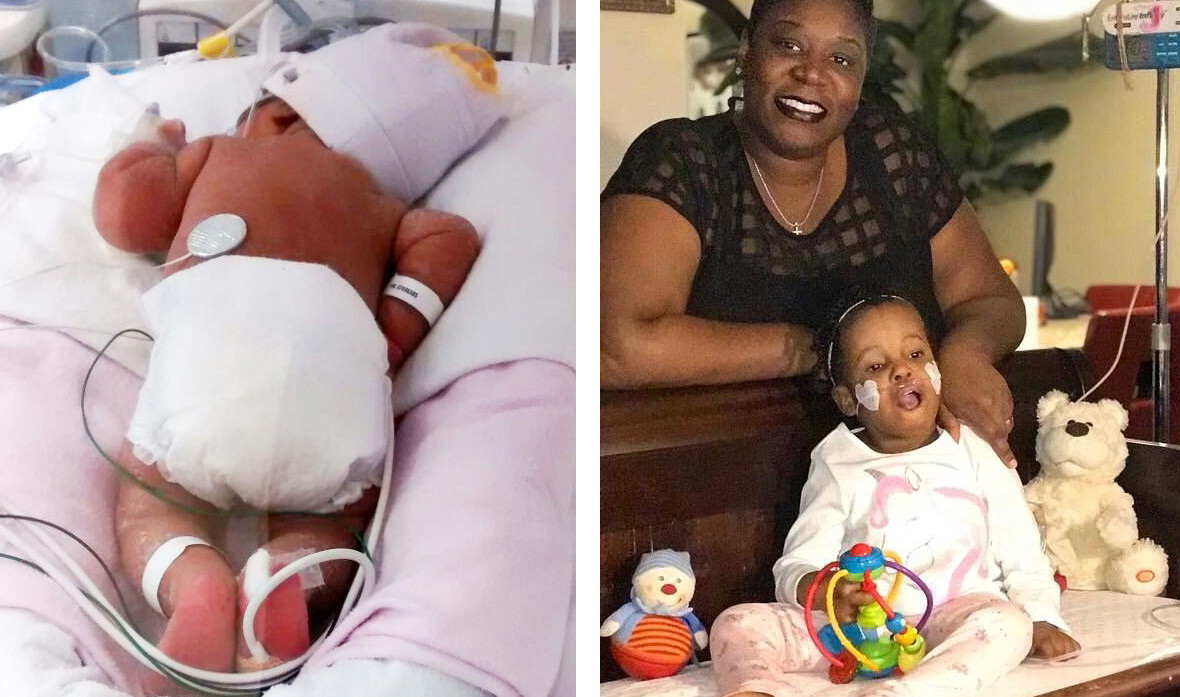
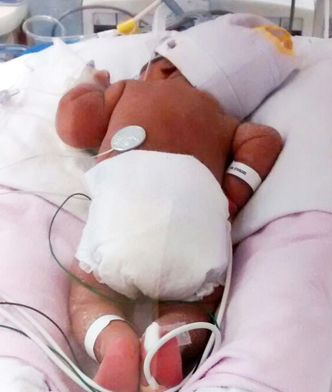
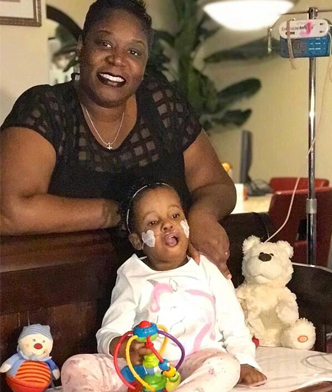
After joining the hospital’s Family Advisory Council, Sophia, along with other caregivers, provided feedback that helped shape a new program called Connected Care, a dedicated transition program for families of children with complex medical needs. You could call it an education and support network that follows families when they leave the hospital.
Connected Care launched in 2018 with extensive, standardized training for both family caregivers and homecare staff, and has since grown to include an on-demand virtual platform that connects homecare staff with a SickKids nurse who can answer urgent questions 24/7. Donor support is helping extend this service to family caregivers, like Sophia, who can now get a direct line to expert advice rather than trying to troubleshoot on their own, or having to trek to the emergency department, a major ordeal for children with high medical needs.
“We've listened to the patient and family voice as we moved the program along,” says Krista Keilty, Associate Chief of Interprofessional Practice, Connected Care. “And we keep adding services that help address the different types of transitions and experiences that families go through.”
Today, Connected Care supports transitions to home for more than 2,000 families a year. And family caregivers like Sophia have been fundamental to this success. “It just makes me so happy to know that there's a team of people that really, really care about the family experience,” says Sophia. “And who want to improve on it and actually ensure that they make our experiences better.”
“We've listened to the patient and family voice as we moved the program along, and we keep adding services that help address the different types of transitions and experiences that families go through.”
Krista Keilty, Associate Chief of Interprofessional Practice, Connected Care